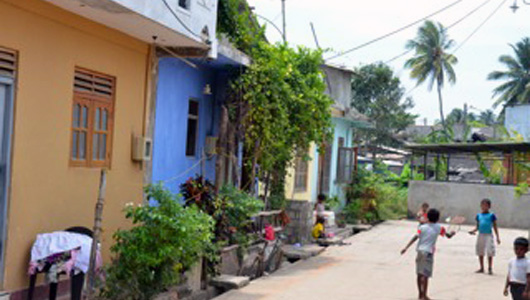Lunawa Environmental Improvement & Community Development Project

The Lunawa Environmental Improvement & Community Development Project (2003-10), was the first ‘test’ of Sri Lanka’s National Involuntary Resettlement Policy. Today it is touted as an innovative, pro-poor model for infrastructure projects in the developing world, especially relevant for the involuntary resettlement of people from densely populated urban areas.

